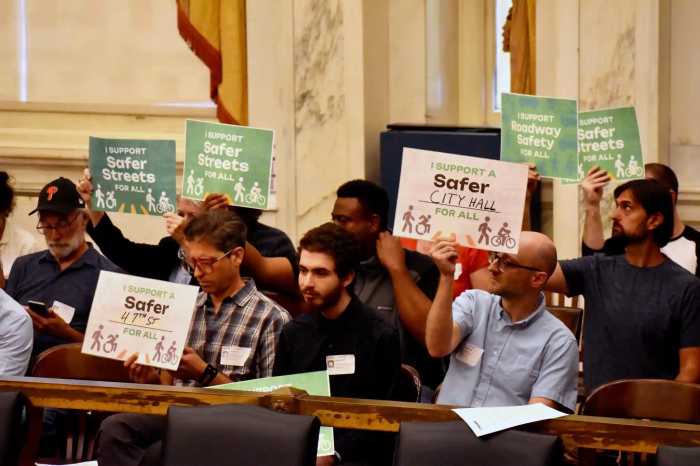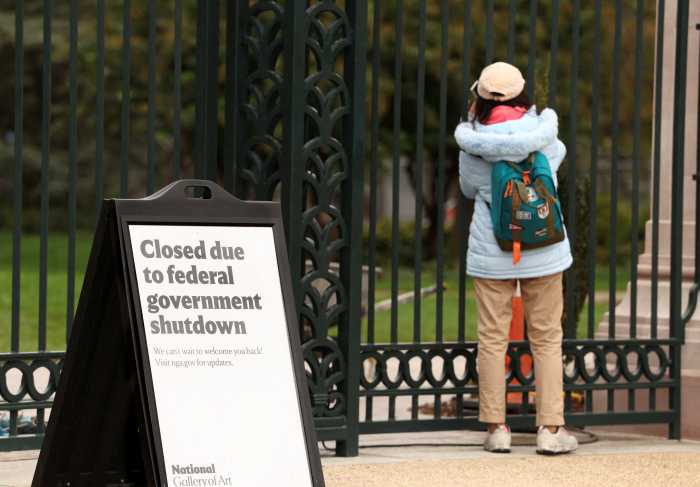Four months after national legal advocacy group intervened on their behalf, two Philly homeowners will be able to keep their homes.
In August, The Institute for Justice announced they would represent Christos and Markela Sourvelis, of Somerton, Doila Welch, of North Philly, and another client in civil forfeiture cases where the District Attorney’s office planned to seize their homes under the state Controlled Substances Forfeiture Act. The office of D.A. Seth Williams confirmed the lawsuits had been dropped.
“It was hard to have to go through such a horrible seven months of this battle,” Markela Sourovelis said. She and her husband, Christos, faced seizure of their home, following the arrest of her son for drug possession at the house. “But we won, and I’m excited and I’m happy and I pray that in the future this doesn’t happen to anyone else.” Welch is recovering from illness and declined to comment but confirmed that she too will get to stay in her home.
First Assistant District Attorney Ed McCann said the D.A.’s office reached agreements with both homeowners to resolve the civil forfeiture actions, which he said is “frequently” the end result of these cases. The agreement stated that “the owner will take reasonable measures to make sure no violations with controlled substances happen on the property,” McCann said. “The son did go through drug treatment court, he completed it successfully, so we’re satisfied that this agreement should be entered.” Proceedings against the third client have not been resolved. The Institute has also taken on a fourth, new case.
All four clients are plaintiffs in a separate federal class-action lawsuit filed by the Institute to declare the state’s civil forfeiture laws unconstitutional and illegal. The Institute’s attorneys said in court filings that the D.A.’s office seized $64 million in property under the Controlled Substances Forfeiture Act between 2002 and 2012, or about $6 million a year – twice as much as law enforcement in L.A. and Brooklyn seize, combined – and 40 percent of those funds went to salaries in the D.A.’s office. Law enforcement has used the act to seize property belonging to convicted criminals or as in the cases of the Sourovelises and Welch, seizing the homes of the convicted person’s family members, despite the fact that the arrested or convicted party is not the legal homeowner. Tasha Jamerson, spokeswoman for D.A.’s office, said in August the numbers cited by the Institute in their federal lawsuit were “greatly exaggerated” and said all funds received through the Public Nuisance Task Force are split between the D.A.’s office and the Philadelphia Police Department and monitored by the Attorney General’s Office. The practice of civil forfeiture was first reported on by Isaiah Thompson for City Paper. The New York Times last month reported on the national trend of civil forfeiture being used not just to seize assets related to crimes, but to fund law enforcement offices. The lawsuit in Philadelphia federal court is pending and a status conference is scheduled for January.
The D.A.’s office is standing by the practice of civil forfeiture and continuing to litigate the issue in federal court, McCann said. He denied the Institute’s allegations that the practice is inappropriate. “Forfeiture’s purpose is not for funding for this office. It’s a tool we use in conjunction with neighborhood groups, elected officials and others to improve public safety. Most of the real estate forfeitures we pursue are referrals from the community. It’s not a budget issue,” McCann said. “If we didn’t have civil forfeiture anymore, we would just have to find the funding in different ways,” he said. “It’s not something that we have to be dependent on.” Despite settling their civil forfeiture action, the Sourovelises will continue to participate in the class action lawsuit. “There’s no way that we’re stepping down from this,” Markela Sourovelis told Metro. “This is something that has to change … We’re innocent, taxpaying people and the majority of people in this city do not deserve to have to go through this.” Under the terms of the forfeiture proceeding, the Sourovelises had agreed to bar their son from entering the house to avoid losing their home immediately. Now their son has returned, Markela Sourovelis said.
“My house is full again,” she said. “I feel like a family again.”



























